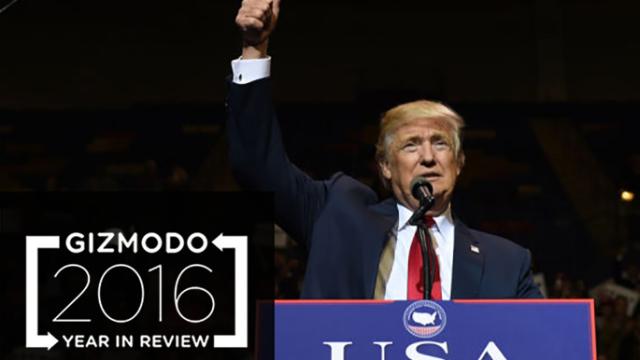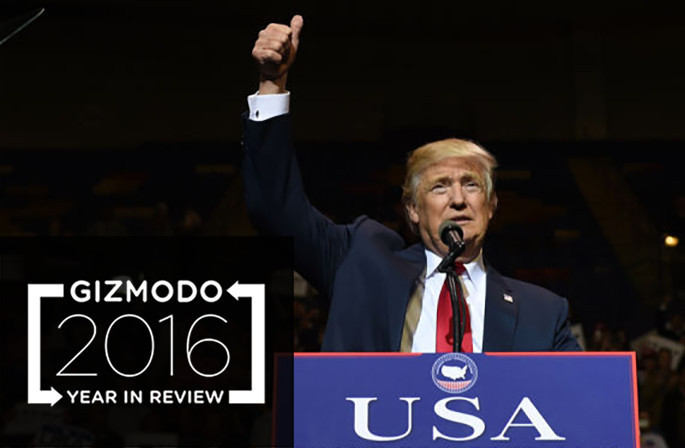
IMAGE: Getty Image
Scientific progress doesn’t always move in a straight line. In fact, as we’ve seen this year, sometimes things just turn around and move backwards. Take climate change. This past November, the landmark Paris Agreement went into effect, with 195 nations signing on to combat the threat of Earth’s changing environment. And then just four days later, United States voters elected a climate sceptic to the highest office of the land.
Fake news, populism and far-right extremism have made 2016 a year in which scientific progress often feels like it’s eroding. These were the worst setbacks to science in 2016.
Donald J. Trump
Since Trump announced he was running for office, tweet by tweet he has worked to discredit the scientific establishment. His election to President of the United States heralds a dark future for science in America — and when it comes to certain topics, like climate change, an all-out war.
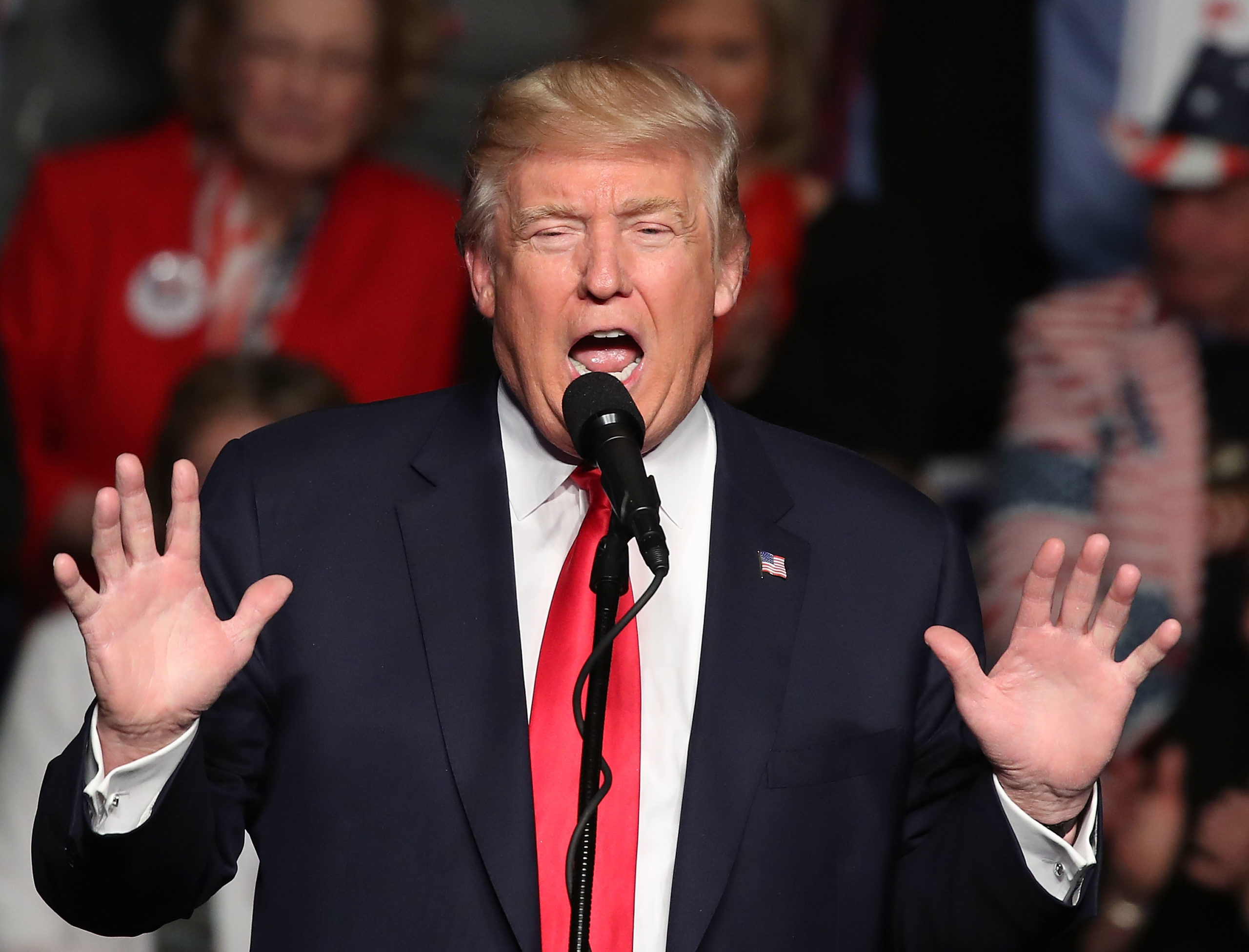
Trump at a rally in Pennsylvania earlier this month. IMAGE: Getty Images
Trump has called global warming a Chinese hoax, as well as “very expensive bullshit.” Since the election, he has doubled down on that view by building a cabinet of oil tycoons and climate sceptics. He has suggested that vaccines and doctors in general can cause autism. He is considering an insane Silicon Valley libertarian, who wants to deregulate the FDA, to head the FDA. He thinks wind turbines are destroying America’s bald eagle population and sending steel straight “into the atmosphere.” He even went on a bizarre tirade against “environment friendly” lightbulbs, arguing that they can cause cancer in a terrifying oversimplification of inconclusive research. And that’s not even the half of it. No wonder the scientific community is collectively freaking out.
Trump Appointing Scott Pruitt, Who Is Suing The EPA, To Head The EPA
As attorney general of the oil and gas intensive state of Oklahoma, Scott Pruitt has spent an awful lot of energy fighting the agency that President-elect Trump has tapped him to run. Pruitt hasn’t exactly outright denied climate change, but he has written that the debate on climate change is “far from settled” and bragged on his LinkedIn page that he is “a leading advocate against the EPA’s activist agenda.” Not to mention that Pruitt is leading a coalition of state attorneys general who are suing the EPA over the Clean Power Plan, a signature Obama policy that calls for power plants cut their carbon emissions 30 per cent by 2030. Pruitt’s appointment is but one of many signals that Trump’s administration plans to attack President Obama’s environmental legacy — and moreover, that climate change progress in America could grind to a halt.
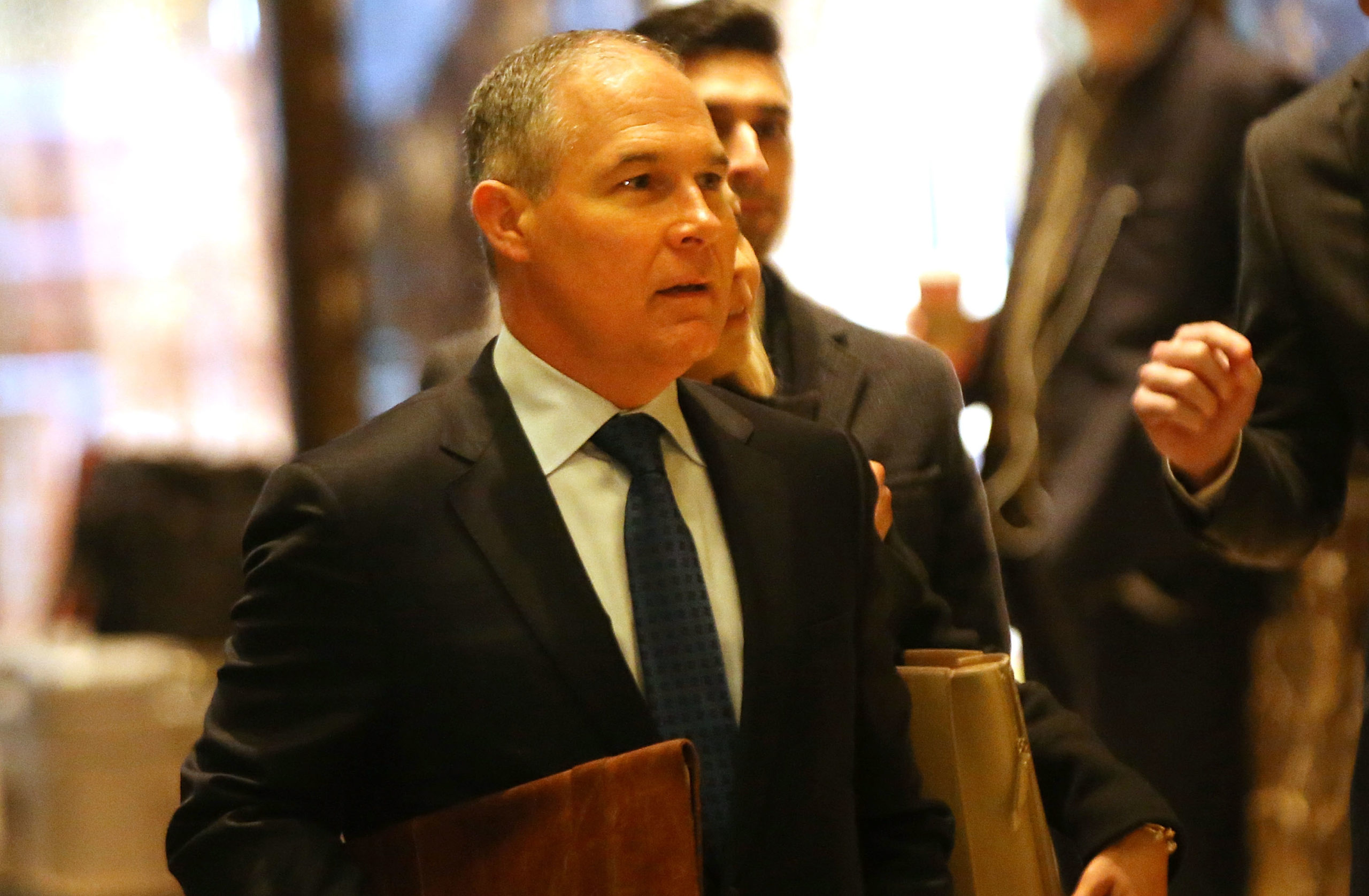
Scott Pruitt at Trump Tower earlier this month. IMAGE: Getty Images
Climate Denial Gained Momentum
The vast majority of climate scientists agree that our planet is warming, and that human carbon emissions are to blame. At this point, this is a well-worn fact. But our post-fact times have been kind to climate change sceptics. While it seems Americans are more concerned about the climate than ever, a study earlier this year also found that over a 15-year period, attacks on climate science have actually increased. This has, in turn, emboldened climate change deniers in public office. This year the Republican-dominated House did everything in its power to block climate change initiatives, seeking to cut funding in nearly every budget line item containing the word “climate.” And in one particularly sad moment, the verified House Science Committee Twitter account even tweeted out a Brietbart article chock-full of misinformation about climate science.
.@BreitbartNews: Global Temperatures Plunge. Icy Silence from Climate Alarmists https://t.co/uLUPW4o93V
— Sci,Space,&Tech Cmte (@HouseScience) December 1, 2016
And So Did The Anti-Vaccine Movement
Since its birth in the 1990s, the movement against vaccinating children has, for the most part, been largely dismissed as an extreme fringe. Vaccines prevent disease without question, and evidence that they cause autism has been thoroughly debunked. But in recent years, the anti-vaccine movement has spread. Along with it, so have the diseases vaccines are supposed to prevent. Last year saw the Jill Stein, also pandered to the anti-vaxxer crowd this election cycle.
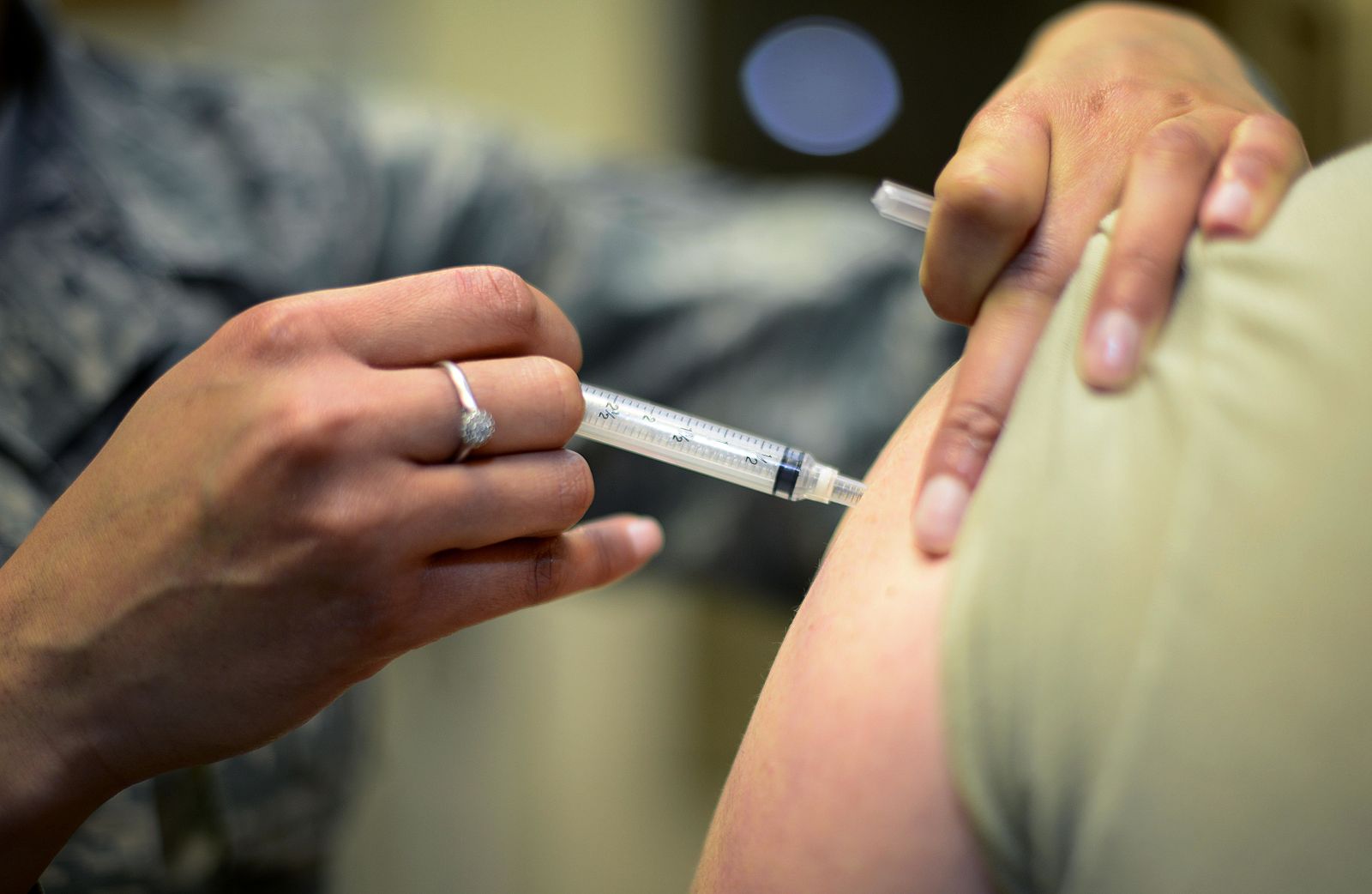
Image: Wikimedia
…And The Anti-GMO Movement
In July, President Obama signed a GMO labelling law that much of the anti-GMO movement regarded as a sham. The law, which will require labelling on all food packages indicating whether they contains GMO ingredients, is indeed a watered-down version of legislation lawmakers sought to pass in Vermont. Activists were angry that the bill will allow food producers put QR codes or 1-800 numbers on packaging that customers would have to scan or call in order to receive information about GMO ingredients — meaning the information about GMOs will still be somewhat obscured.
But even if the law is toothless, the fact that it exists is still a victory for the anti-GMO movement, and hence for yet another public backlash against science. After all, most scientists agree that GMOs, which are in upwards of 75 per cent of our food, are safe to consume.
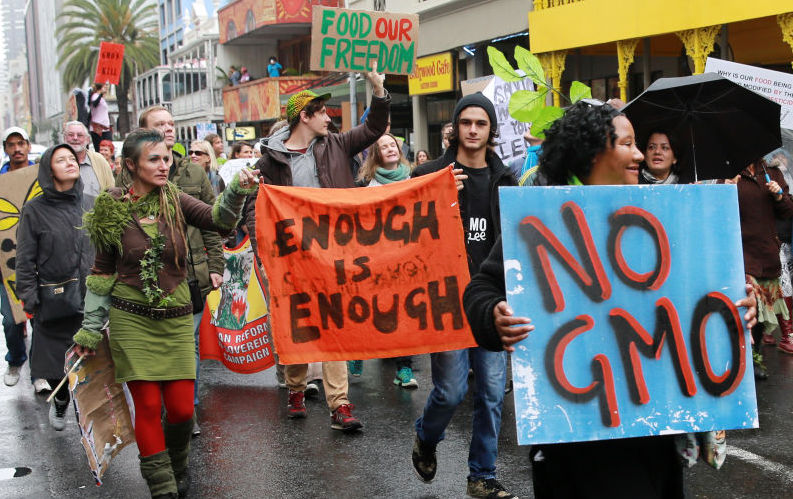
Anti-GMO protestors. IMAGE: Getty Images
A recent Pew Research survey found that a fifth of those under 30 feel not only that non-modified foods are better, but that GM-varieties might lead to health problems, a claim which is not supported by science. Unfortunately, the anti-GMO frenzy has also blinded activists to the potential benefits of GMOs. Take the environmental group Greenpeace, which has worked vigorously to block GMOs designed to reduce vitamin A deficiency in economically impoverished nations.
America Lost The Gene-Editing War Before It Even Began
In both the U.K. and China, researchers were given the go-ahead to edit the genomes of human embryos. In the US, however, two sentences tucked inside a federal spending bill last December effectively banned testing of gene-editing on human embryos. It’s true that the world isn’t quite ready for designer babies. But blocking basic research like this often has unintended consequences. The new law, for example, effectively halted research into a promising genetic engineering technique that could help mothers avoid passing devastating genetic disorders to their children. When it comes to genetic engineering, at least, Congress proved fear trumps progress.
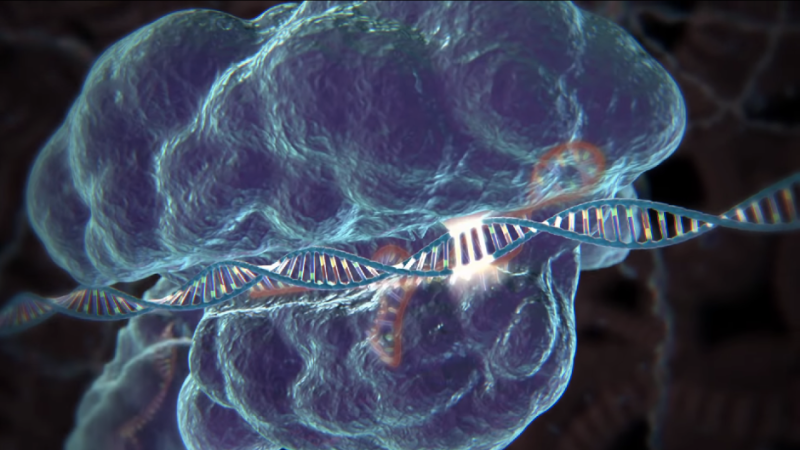
CRISPR identifies and locks on to its genetic target. IMAGE: MIT
Theranos Eroded Trust In Science Technology
The blood-testing startup Theranos promised something amazing: to make blood tests easier and more affordable by replacing needles with a simple finger prick. Then last fall the Wall Street Journal published an investigation of Theranos that cast doubts on everything. Only 15 of the 240 tests Theranos offered, it alleged, were conducted using the company’s signature technology, and its lab test results were sometimes wrong. This year, after government regulators declared that the blood tests “pose immediate jeopardy to patient health and safety,” the company vowed to fix its problems.
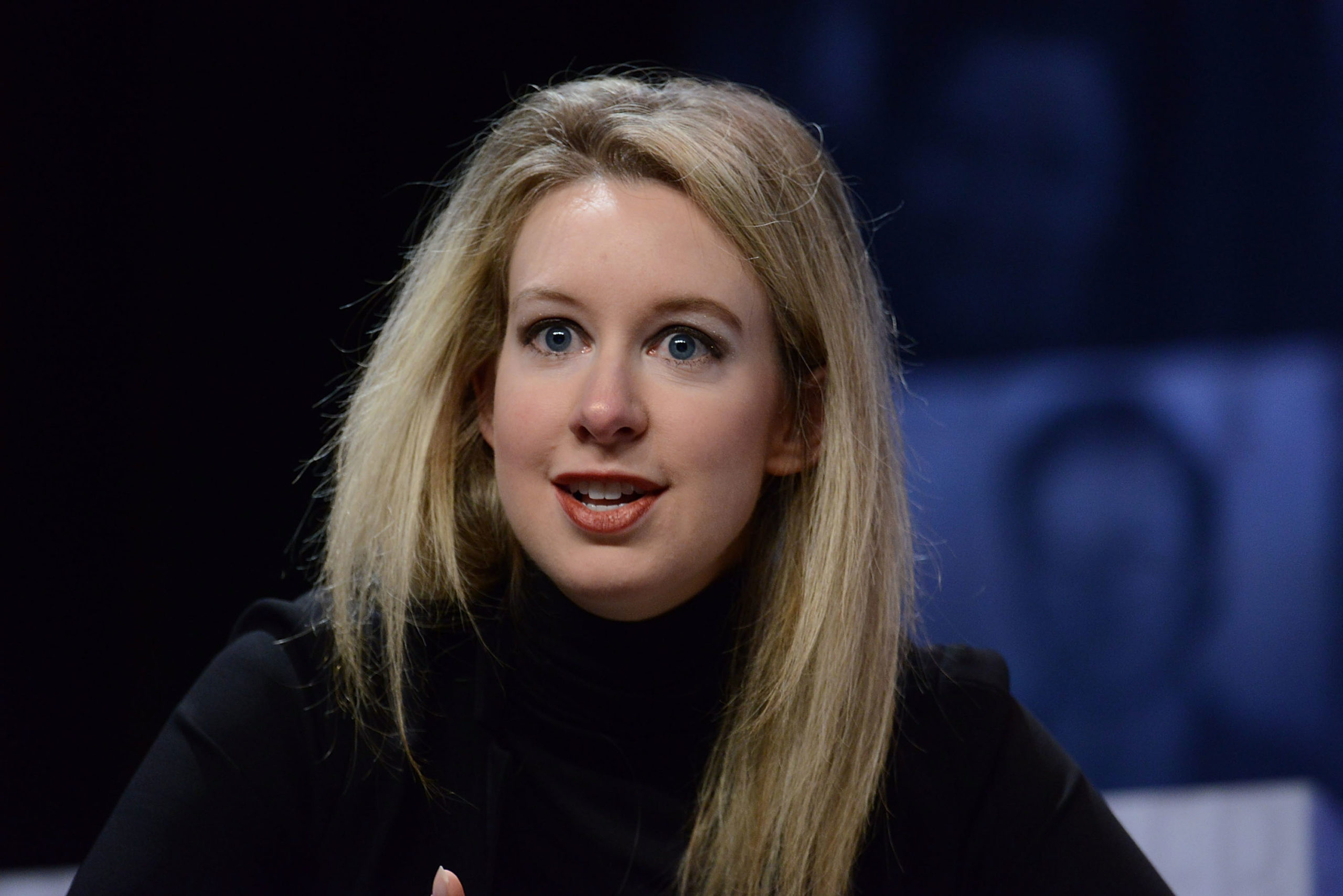
Theranos CEO Elizabeth Holmes. IMAGE: Getty Images
Instead, this fall the company laid off nearly half its staff and announced it was getting out of the blood testing market entirely. Theranos became a cautionary tale of what happens when technologies based on new science don’t get throughly vetted by investors and scientists — and it has made the world a lot more cautious when it comes to believing the next big medical breakthrough.
Science Education Standards Got Worse
It should have been a good year for science education. New standards for teaching science across the country meant that even in states like Texas, creationism has been taken off some curriculums and lessons about human-induced climate change have been added. In Portland, the school board went as far as to make it illegal to include climate-denial material in lesson plans.
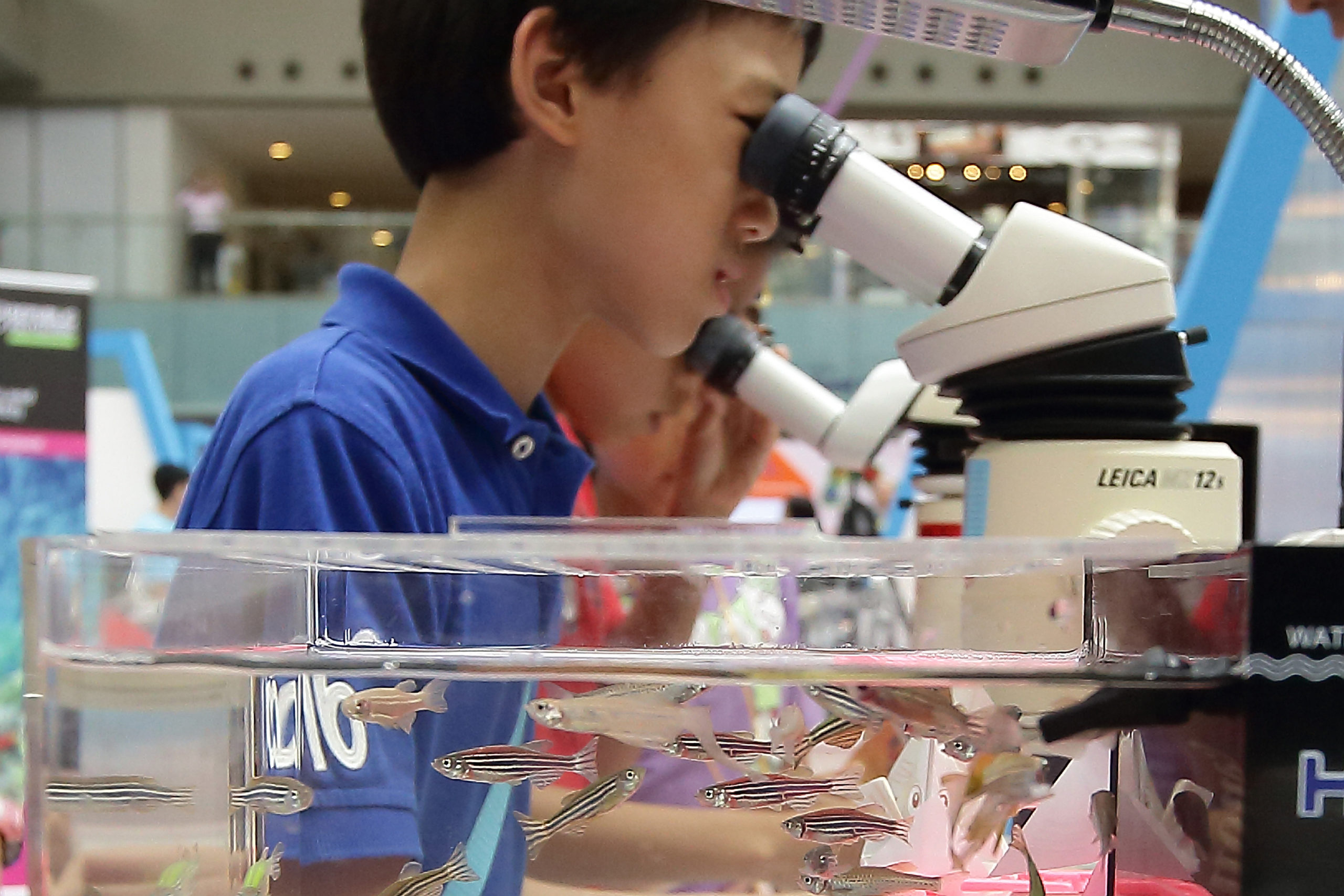
IMAGE: Getty Images
But in coal-producing West Virginia, the state pushed back, voting to block new science standards because they describe climate change as a human-caused problem. It turns out West Virginia isn’t the only state teaching science badly: a survey this year found 7 per cent of teachers attributed recent warming to natural causes (wrong), 22 per cent said there is significant disagreement among scientists about climate change (also wrong) and 4 per cent avoided the topic altogether. Not to mention, oh yeah, our next Vice President is a guy who has argued that public schools should teach the theory of intelligent design alongside evolution.
